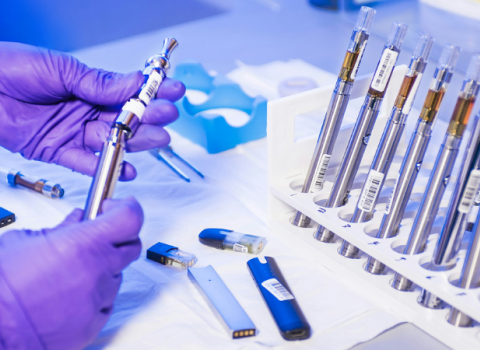
This research agenda sets the direction for plant science research in Europe for the next 20 years, but perhaps more importantly it explicitly describes the contribution that agriculture could make to increasing the continent’s self-sufficiency, not only in feeding its people, but also in substituting fossil fuels with biofuels and developing sustainable industrial products.
Five points for growth
The Strategic Research Agenda covers five areas:
The production of healthy, safe and sufficient food and animal feed;
The development of plant-based products, in particular green, or sustainable, chemicals and bioenergy;
Work to make agricultural production sustainable, promote forestry and protect the landscape;
Ensure that Europe’s basic research in plant sciences is competitive;
Protect consumer choice and provide the tools for guaranteeing the safety of food crops.
The agenda has the backing of farmers, scientists and the industry. Speaking at the launch in the European Parliament on Monday Willhelm Gruissem, President of the European Plant Science Organisation, said, “Europe must put its knowledge base in the field of plant science into practice to keep the European agriculture sector innovative and internationally competitive.”
Although there is plenty of talk about the role that genomics will play in modernising plant breeding techniques, there is no mention of GM crops. Instead, the vision is of “improved crops” that will have desirable characteristics such as drought or salt tolerance, have superior nutritional qualities or enable Europe to reduce its dependence on imports of animal feed such as soybeans.
The GM barrier
However, the introduction to the agenda does point out that stringent regulation of GM crops in Europe has created a “barrier to innovation”. Private investors have held back as a result.
Gruissem warmed to this theme in his speech, saying Europe has “failed to harvest the fruits of its plant research”. The technique of genetically modifying plants was discovered in Europe by Marc Van Montagu and Jeff Schell, and there are other examples of European plant scientists making breakthrough discoveries and developing new concepts. “But,” said Gruissem, “Europe is not effectively exploiting this leadership and often leaves it to other nations to put discoveries and new principles into agricultural practice.”
For example, the current worldwide adoption rate of high value genetically modified traits that were developed in the US and elsewhere is unprecedented in the history of agriculture. “But this revolution is bypassing Europe,” said Gruissem.
Gruissem claimed also that Europe’s stance on GM crops is stifling the development of modern plant-based economies in African countries that rely on Europe as their market.
And Europe is being left behind in the next great wave of agricultural development, the production of feedstock for biofuels. “The US will invest nearly $2 billion in the field by the end of this year,” he noted. Other countries including Russia, China and Brazil are investing in plant research for the sustainable production of biomass, also.
Regaining leadership in agricultural innovation, novel uses of plants and the sustainable production of industrial resources from biomass is a big challenge, Gruissem told his audience. “We are convinced that the strategic perspective of the technology platform will put plants back on the agenda of Europe’s policy makers.”





 A unique international forum for public research organisations and companies to connect their external engagement with strategic interests around their R&D system.
A unique international forum for public research organisations and companies to connect their external engagement with strategic interests around their R&D system.